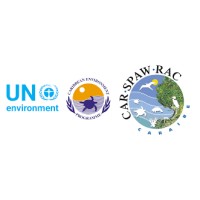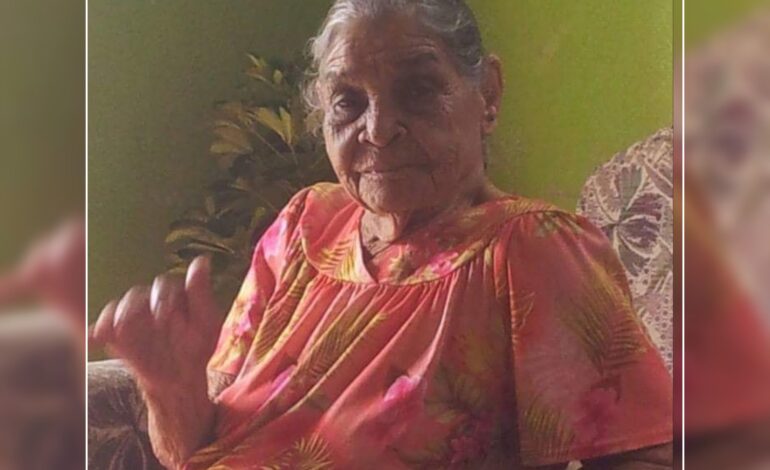
Kingston, Jamaica. 5th November 2021. The United Nations Environment Programme Cartagena Convention Secretariat, based in Kingston, Jamaica, is pleased to announce that the Government of the Republic of Nicaragua is now the 18th country in the Wider Caribbean Region (WCR) to ratify the Cartagena Convention’s Protocol Concerning Specially Protected Areas and Wildlife (SPAW). The Government of Nicaragua deposited its instrument of ratification with the Government of Colombia (Depositary of the Convention and its Protocols) on 4th May 2021.
The announcement was made at the 19th Intergovernmental Meeting on the Action Plan for the Caribbean Environment Programme and 16th Conference of Parties to the Cartagena Convention, held virtually from 28th to 30th July 2021.
The Principal Coordination Officer of the Secretariat, Dr. Lorna Inniss, congratulated the Government of Nicaragua on this significant step, adding that the country, boasting 7% of the world’s biodiversity under its sovereignty, has demonstrated its legal commitment to working with other regional Governments and partners to implement the provisions of the Protocol in all aspects of development.
Programme Officer with responsibility for the SPAW Protocol, Ms. Ileana Lopez, also applauded this move by the Government, noting that “the Cartagena Convention Secretariat welcomes wholeheartedly the incorporation of Nicaragua as the eighteenth member of the SPAW family.”
The collaboration between the Secretariat and Nicaragua has strengthened over the years through partnerships with the Ministry of Environment and Natural Resources and national universities.
What is the significance of this ratification to the regional agenda on marine biodiversity?
The Cartagena Convention is the only legal instrument of its kind in the region to protect and develop the marine and coastal resources of the Caribbean Sea.
The Convention and the SPAW Protocol set regional priorities to safeguard and conserve the region’s marine ecosystems and manage species of fauna and flora, with the objective of preventing them from becoming endangered or threatened.
Celebrating 35 years since the entry into force of the Cartagena Convention
Page 1 of 3
By ratifying this agreement on marine biodiversity, Nicaragua has pledged its political commitment to protect, preserve and manage, in a sustainable way, the areas within its jurisdiction that require protection to safeguard their special value, as well as species of flora and fauna.
The United Nations Environment Programme, working through the Cartagena Convention Secretariat, will continue to assist regional governments to meet their obligations under the SPAW Protocol. This includes providing support to improve the management of protected areas, conserve and sustainably manage threatened and endangered species, and achieve the objectives and targets under other regional and global biodiversity agreements and commitments, such as the 2030 Agenda for Sustainable Development, the Post 2020 Global Biodiversity Framework of the Convention on Biological Diversity and the United Nations Decades on Ecosystem Restoration and Ocean Science for Sustainable Development.
The Cartagena Convention Secretariat looks forward to the ratification of the SPAW Protocol by all 28 countries in the Wider Caribbean Region.
Celebrating 35 years since the entry into force of the Cartagena Convention
Page 2 of 3
About the Cartagena Convention
The Convention for the Protection and Development of the Marine Environment in the Wider Caribbean Region was adopted in 1983 in Cartagena, Colombia. Known as the “Cartagena Convention”, it became legally binding in 1986.
The Convention is supported by 3 Protocols, or technical agreements, namely the Protocol Concerning Cooperation in Combating Oil Spills, the Protocol Concerning Pollution from Land-Based Sources and Activities (LBS or Pollution Protocol) and the Protocol Concerning Specially Protected Areas and Wildlife (SPAW or Marine Biodiversity Protocol).
The Secretariat for the Cartagena Convention and its Protocols is based in Kingston, Jamaica and is supported by specialized Regional Activity Centres (RACs). The RAC for marine biodiversity is hosted in Guadeloupe (SPAW RAC), the one for Oil Spills is hosted in Curacao (RAC REMPEITC Caribe) while the LBS RACs are hosted in Trinidad and Tobago (Institute of Marine Affairs) and Cuba (Centre of Research and Environmental Management of Transport-CIMAB).






